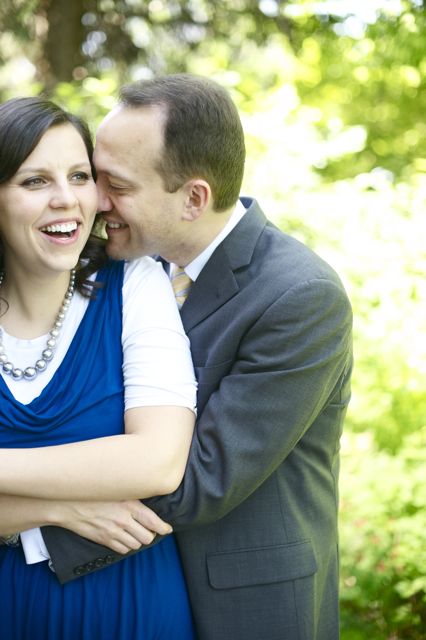This is a small piece I wrote in my creative nonfiction class this quarter. I imagine more of these, unrevised though they are, will be coming.
I used to smell the cilantro as it passed across my scanner. I would pick it up off the belt--and slow the stream of purchasing long enough to open the tissuey plastic produce bag and slip my nose in. My nose on their cilantro. I pretended it was normal. "Never can tell," I would say. "It looks so much like parsley." And I would pass the bag to my left, slip it down the slope to the end of my checkstand counter where, if I was lucky, stood a bagger who would load and stack and fill and pack. Bananas on top. People always bought bananas.
I was a checker-slash-bagger at the HEB in Far West, the one with the big kosher section and deli because we were near the Austin Jewish Community Center. I lived next to the grocery store--through the parking lot, past the rusted, one-wheeled shopping carts, up a small wooded embankment, where one night after a late shift or an evening shopping run my roommates and I saw and heard an owl. I never used a shopping cart when I lived there because, if I did, I'd buy so much I couldn't carry it all home. Even then sometimes I'd have to rest my bags on the ground, stopping periodically to rest my fingers and wrists from the tight pull of the plastic handles.
It was the handles on the plastic bags that meant I had to use them. I couldn't carry my groceries home in a paper sack--all under one arm. I was the fourth child of nine; I have never learned to shop for one. And our paper bags at HEB had no handles. We were no Trader Joe's in this respect. I packed food and toiletries and paper products and bananas--people always bought bananas--into plastic bags all day. Junior bags were smaller--each could hold one gallon of milk--and we were encouraged to use them. "One and a half cents per bag," my manager reminded us. "And the bigger ones are three cents." "How much for the paper?" I asked. "Seventeen cents," he said. "We'd stop offering them if we could."
Now when I go to grocery stores I am tempted to tell my checker I used to work at one, too. And not so long ago--three years, actually. Three years. The length of law school. Sometimes I do--I say it to the man or woman or kid ringing up my orange juice, my frozen potstickers, my bananas. I wonder what they'll think of me, wearing a law school sweatshirt, spending more than I can afford on chicken breast and whole wheat tortillas. Maybe they think I'm condescending, holding onto a past, perhaps a summer job, that isn't worth remembering. Probably they think nothing. "How much you get paid?" one checker at the Safeway on California asked. "$7.50 an hour," I said. She laughed. "I get $18."
I left Austin, left the HEB, left the days, I guess, of smelling other people's cilantro. I graduate from law school in May, and I may never be able to afford to work in a grocery store again. But when I choose plastic bags--still, for the handles--I remember this: a white stubble-faced customer who told me he wanted paper. "I always get paper," he said. "Why?" I looked up and asked. "Because," he said, "I was a sailor. And once, three thousand miles from anywhere, I looked down in the ocean and saw a plastic bag floating there."
For Jess.
Tuesday, January 29, 2008
Subscribe to:
Post Comments (Atom)

4 comments:
I once patroned that particular HEB...Oh how I miss it.
Bless you. And keep it coming. My soul delights in such rhetoric.
I very much enjoyed this.
Post it all. Anything you write in your creative non-fiction class, we want it.
Post a Comment